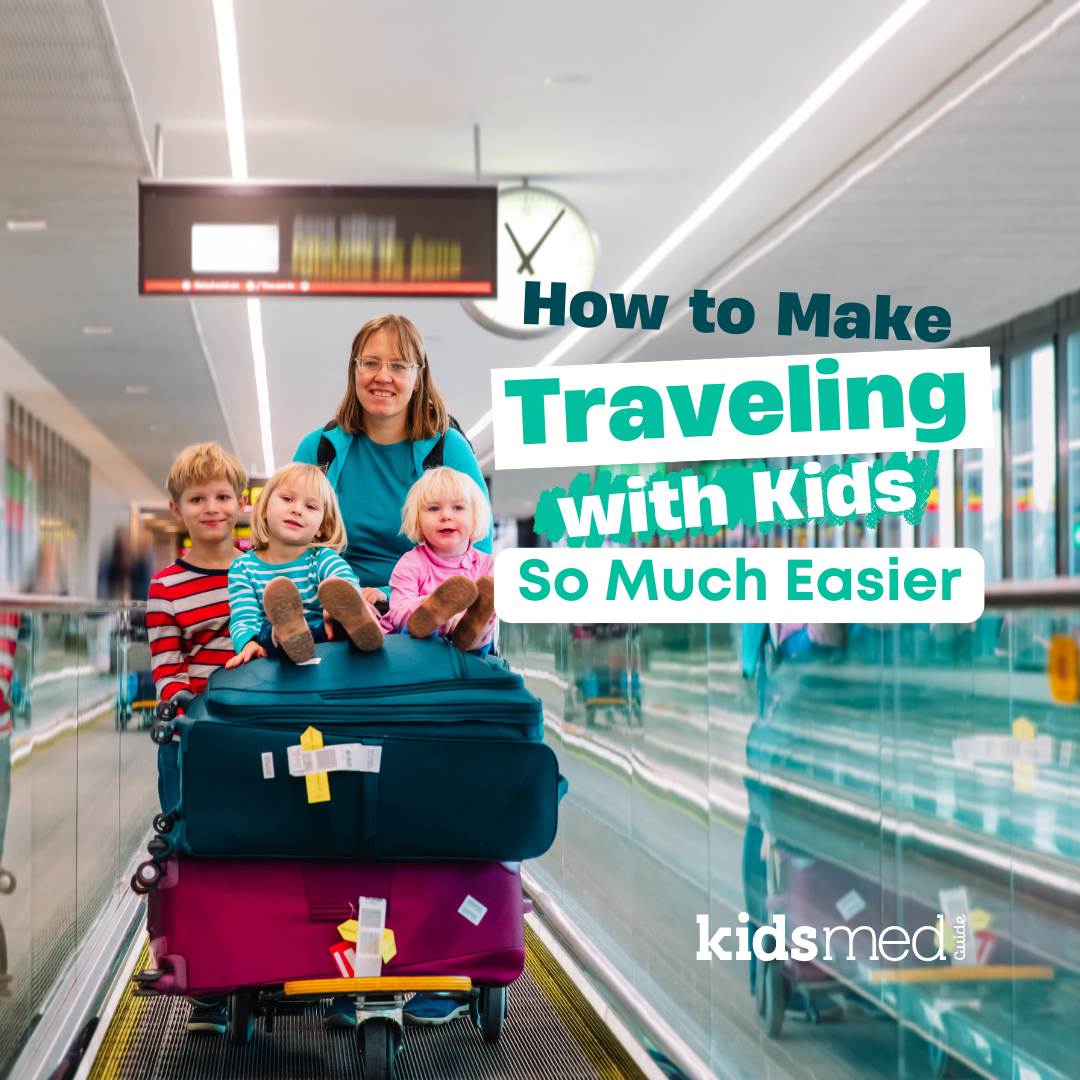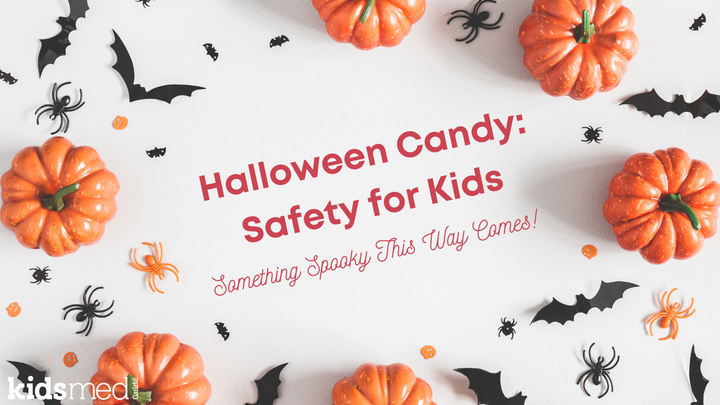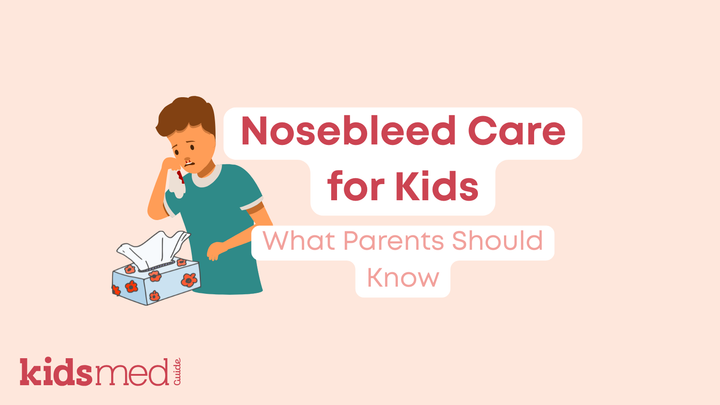How to Make Traveling With Kids So Much Easier

Traveling with children can be exciting but requires careful planning, especially regarding health and wellness! Here's a guide to help you prepare for a easier, safer and more enjoyable trip with your little ones.
Before you Leave
Research medical facilities:
- Locate pediatric urgent care centers and hospitals near your destination.
- Save their contact information in your phone.
Consult your pediatrician:
- Schedule a pre-travel check-up if necessary.
- Discuss any specific health concerns or required vaccinations.
Prepare a medical information sheet for each family member:
- List current medications, dosages, and allergies.
- Include blood type and any chronic conditions.
- Add emergency contact numbers, including your pediatrician's.
Review your health insurance coverage:
- Understand what's covered out-of-network or out-of-state. No one likes a surprise bill!
- Consider travel insurance if traveling internationally.
Packing Essentials
First-aid kit:
- Pack a thermometer, band-aids, and antibiotic ointment.
- Include over-the-counter pain relievers like acetaminophen or ibuprofen in children's formulations.
- Remember appropriate measuring devices for liquid medications.
- Consider diphenhydramine if you have a concern for allergic reactions.
- Consider children's cetirizine or loratadine if you are concerned about seasonal or environmental allergies.
- Remember to follow age and weight recommendations on over-the-counter medication labels!
Medications:
- Bring any prescription medications in their original containers.
- Pack extra doses in case of travel delays.
- Remember any emergency medications your family members might need, such as prescribed Epipens®.
Health documents:
- Carry copies of vaccination records, especially for international travel.
- Bring your medical information sheets.
- Include insurance cards and policy information.
- If your health provider uses an online record-keeping portal, ensure you know your passwords.
Comfort items:
- Pack a favorite stuffy or toy to help children feel assured.
- Consider bringing a nightlight if your child uses one at home.
Snacks and hydration:
- Pack plenty of water and healthy, non-perishable snacks.
- Try to avoid sugary treats that might lead to energy crashes. A sugar crash on a plane or stuck in a car is pretty awful!
Miscellaneous items:
- For warm and sunny travel, remember sunscreen and sun protection (hats, sunglasses, UV-blocking clothing)
- For cold weather travel, remember hats, gloves, warm coats, extra socks, and extra blankets for car travel in case of road hazards.
During Travel
Stay hydrated:
- Encourage regular water intake, especially during air travel.
Plan for breaks:
- Schedule regular stops during road trips for stretching and bathroom breaks.
- Encourage movement when it's safe to do so on planes or trains. This is good for both kids and adults!
Maintain cleanliness:
- Pack hand sanitizer and wet wipes for quick clean-ups.
- Remind children to wash hands frequently, especially before eating. Only thorough hand washing with soap and water will help prevent a GI bug like norovirus.
Tips for Specific Travel Methods
Car travel:
- Ensure car seats are correctly installed and appropriate for your child's age and size.
- Plan routes with rest stops or parks for children to run around.
Air travel:
- Bring a change of clothes for each family member in your carry-on.
- Consider packing a small backpack with activities and snacks for each child.
- Ensure essential or life-saving medications (Epipen®, insulin, etc.) are stored in your personal carry-on bag for easy access.
Train travel:
- Be vigilant around platforms and when moving between cars.
- Use stops at stations for quick stretches and fresh air.
Additional Wellness Considerations
Maintain routines:
- Being flexible while traveling is key, but do your best to stick to regular naps and bedtimes.
- Try to eat at your family's regular times and have emergency snacks on board. No one likes a hangry kid!
Manage stress:
- Plan for downtime and avoid over-scheduling. Busy kids are good kids, but overstimulated kids can quickly fall apart.
- Be flexible and patient. Travel can be overwhelming for children.
Encourage physical activity:
- Find ways to stay active, like exploring a city park or going for a family swim.
At Your Destination
Examine your environment for safety risks:
- When you get to your hotel room or vacation house, closely examine the area for hazards.
- Is there water on the property? Is the location secure from curious toddlers?
- Did prior occupants leave anything dangerous on the floor or in the drawers, such as medication? Crawl around and look!
- Do the doors securely lock? Are there multiple escape avenues in case of fire or other emergency?
- Do smoke detectors/carbon monoxide detectors work?
- Review a plan with your kids on what to do if they get lost or separated from you.
- Have fun!



